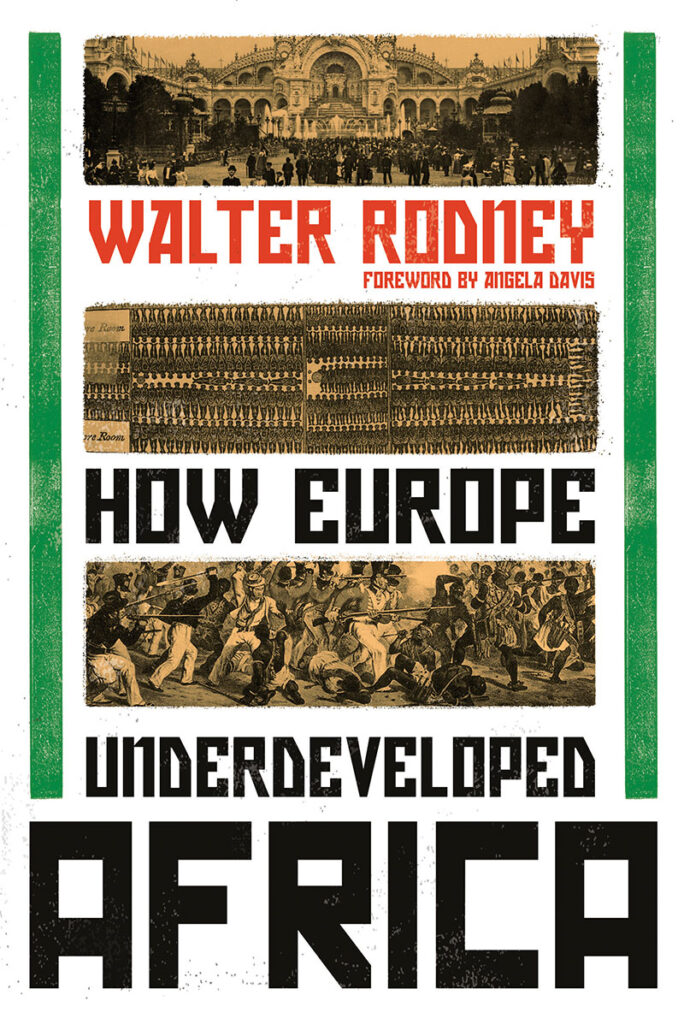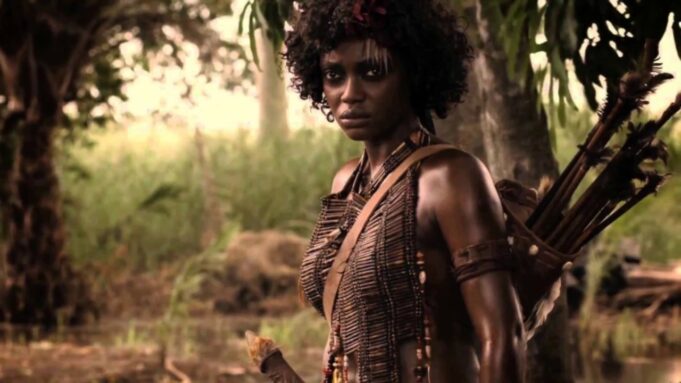The film “The Woman King,” directed by Gina Prince-Bythewood and starring award-winning actress Viola Davis, though receiving much acclaim, has also been criticized for historical inaccuracy. When questioned about the “backlash” Davis paraphrased Prince-Bythewood, stating, “you’re not going to win an argument on Twitter.” Davis’ husband and producing partner, Julius Tennon added, that the film depicts history but also takes “license” with it for the purpose of entertainment. He also stated that if they wanted to give a “history lesson” they might as well have produced a documentary.

This writer received positive feedback on social media for posting that in order to cut down on “the chatter,” the film’s producers could have gotten scholars together and discussed the issue of the slave trade the movie failed to address as thoroughly and comprehensively as it possibly could have been.
Maybe the best between a rock and a hard-place retelling of how the Dahomey’s trading in African slaves became a part of its development was done in the book, “How Europe Underdeveloped Africa,” by Walter Rodney. In his 1972 book, Dr. Rodney points to the fact that the “ceremonial (female) guard … progressed to become an integral part of Dahomey’s fighting machine, in terms of complete equality of hardship and reward.”
Different from the surrounding kingdoms, “who failed to protect their own citizens from enslavement or of actually conniving at their enslavement … Dahomey never followed such a policy, which was directly antagonistic to the maintenance of the state,” Dr. Rodney continues.
“Instead, Dahomey eventually becomes a classic raiding state of West Africa even after failing to get Europeans to accept any products other than human beings. To achieve that, Dahomey had to first to build up a tightly organized military state … .”
Unlike other surrounding kingdoms, Dahomey took it upon itself to protect its citizens, by dedicating itself to the art of war.
“Within European history, the state of Sparta stood out as one that was completely dedicated to the art of war. Europeans in Africa in the 18th and 19th centuries invariably referred to Dahomey as a black Sparta,” noted Rodney.
Born into an environment where captured enemies became a kind of medium of exchange, Dahomey became a powerful military state. “Dahomey (along with the later development of female warriors) encouraged young boys to become apprentices of war.”

According to Rodney, “the trade in slaves cast a blight on Dahomey.” They were costly and not aways “rewarding.” Adding to that he wrote, “European buyers failed to turn up during certain years, depending on European conditions (e.g., during the American War of Independence, the French Revolution, and the subsequent revolutionary wars, there was a lull in Dahomey slave exports, because fewer European ships could be spared for the trade in slaves).”
Conflating the history is where Dahomey’s greatest king Agajo Trudo destroyed slave camps, but in the film Viola Davis’ character Nanisca, and her warriors, destroy a slave market.
According to “How Europe Underdeveloped Africa,” in the 1720s, Dahomey opposed European slave traders, and was deprived of European imports—some of which had become necessary by that time.
“Agaja Trudo, Dahomey’s greatest king, appreciated the European demand for slaves and the pursuit of slaving in and around Dahomey, was in conflict with Dahomey’s development. Between 1724 and 1726, he looted and burned European forts and slave camps; and he reduced the trade from the ‘Slave Coast’ to a mere trickle, by blocking the paths leading to sources of supply in the interior,” Rodney explains.
Rodney describes the African slave trade as central to European growth, most importantly through the slave trade from approximately 1445 to 1870, which transformed Africa into a source of human raw material for the new colonies in North America, the Caribbean and Brazil.
Yet as Rodney also explains, the “development” of African societies like Dahomey was thwarted in this process of capital expansion. First and foremost, this was done through the lost labor potential due to the slave trade. From its economic foundation in slavery, the range of exports from Africa narrowed to just a few commodities, undermining the development of productive capacity in Africa.
The film, “The Woman King,” provides a glimpse of African development of raw materials.
The stagnated trade that the development of raw materials could have produced meant that technological development ceased, creating a barrier to innovation within Africa itself, even in regions not directly engaged in the slave trade, because of the distorting influence on overall relations between African nations.
In my view, Africa’s greatest anti-slavery ruler was Ana Nzinga (1583–1663). According to thoughtco.com, she took over where her father Ngola Kiluanji Kia Samba had and began fighting against the Portuguese who were raiding their territory for enslaved people and attempting to conquer the land in what is present day Angola.
The Portuguese believed the land to be rich in silver. A capable negotiator Anna Nzinga convinced the Portuguese invaders to limit the widespread trade in Central Africa of enslaved people.
She was also a brilliant military tactician and fierce warrior who later led her army—a coalition of forces—in a complete route of the Portuguese army in 1647 and then laid siege to the Portuguese capital in Central Africa, before signing a peace treaty with the colonial power in 1657, rebuilding her kingdom until her death six years later. Follow @JehronMuhammad on Twitter













